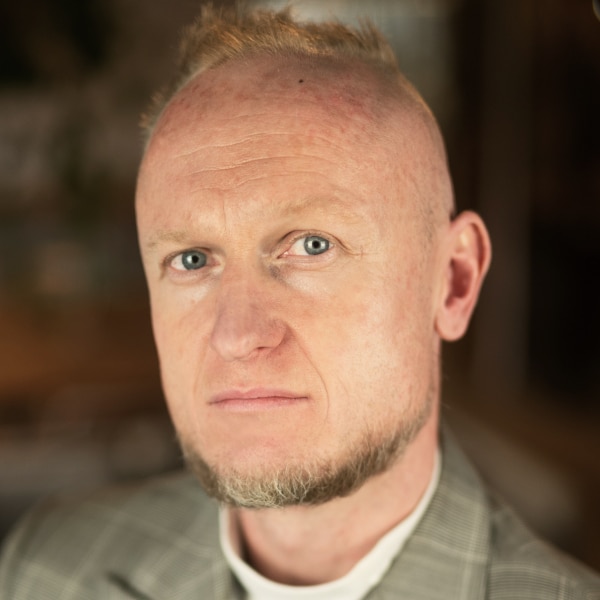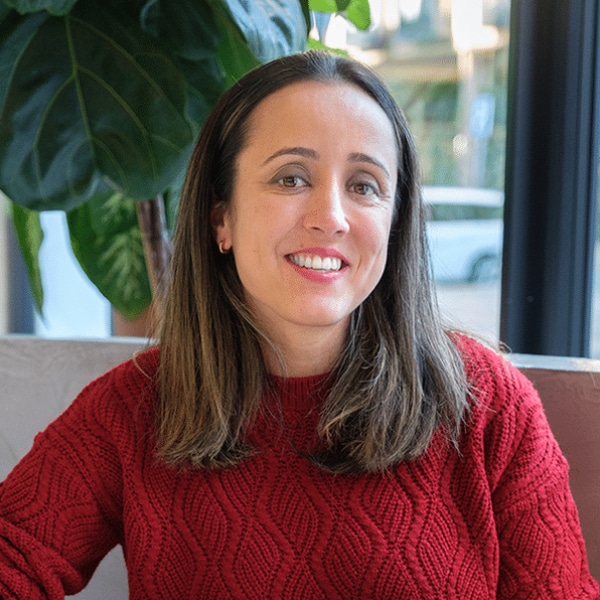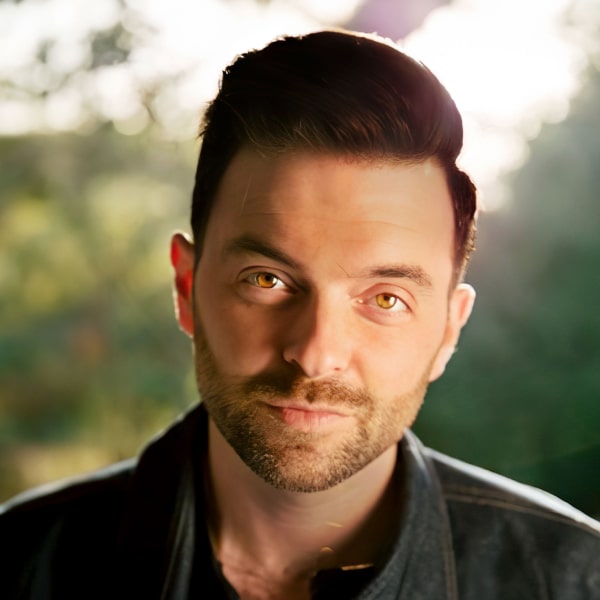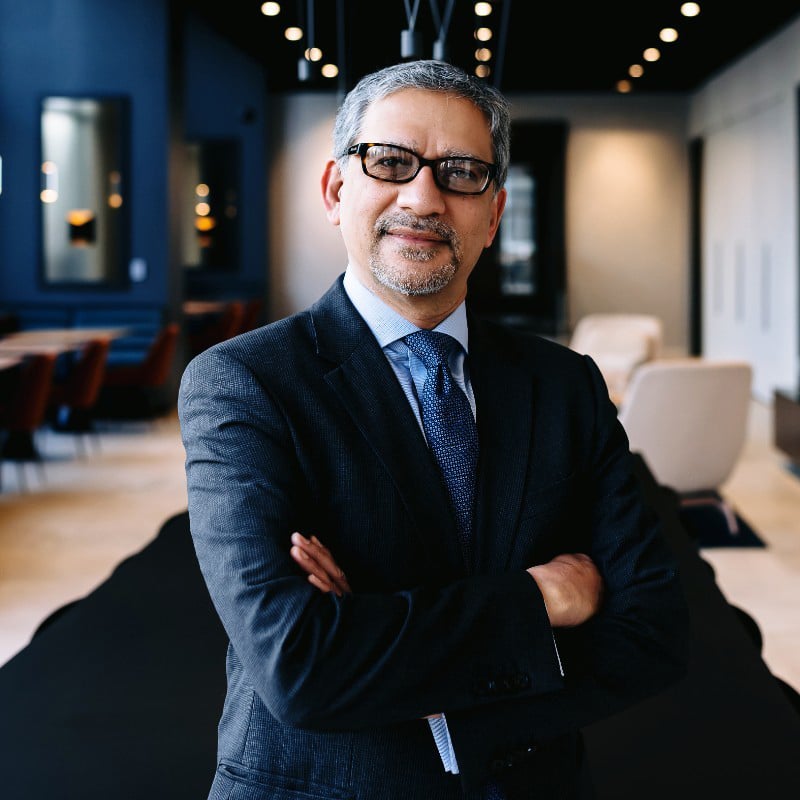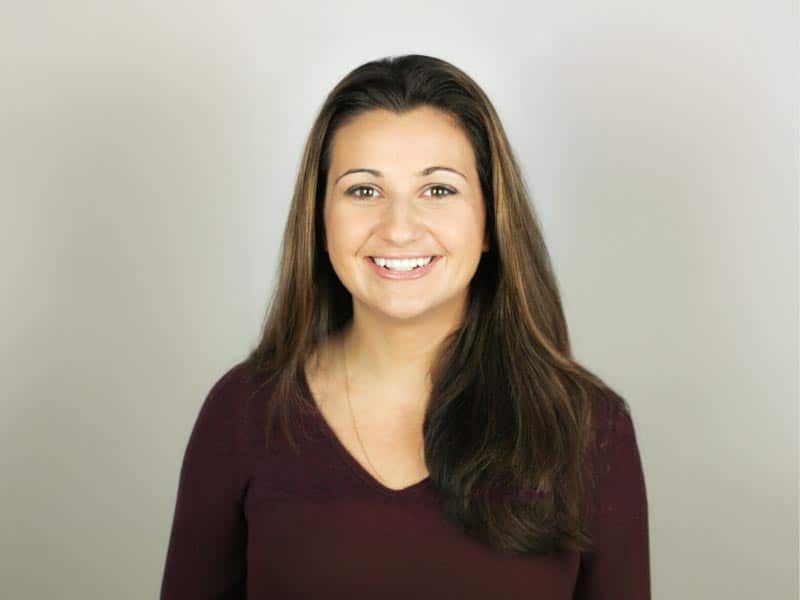Leading Through Change: The Human Side Of Marketing Leadership
Anna Jankowska
EVP & Author

“Being honest, being genuine, creates an ecosystem where people feel safe and want to build long-lasting relationships with you.”
Anna Jankowska
Navigating change in today’s fast-moving marketing landscape isn’t easy—especially with the constant pressure to adopt new technologies, evolve strategies and meet ambitious goals.
In this episode of Leader Generation, host Tessa Burg talks with Anna Jankowska, Author and EVP of Adlook and RTB House, to discuss how leaders can bring their teams along through transformation while maintaining clarity, confidence and connection.
“When you allow people to be themselves and feel safe, the revenue and results will follow.”
Anna shares her expertise on building strong, trusting relationships in business, reducing noise in decision-making and creating an environment where people feel safe to grow and innovate. She also offers insights into managing fear, embracing failure as a learning tool and fostering an adaptive mindset in uncertain times.
Highlights:
- How leaders can navigate change while keeping teams engaged
- The role of emotional intelligence in business success
- Strategies for building long-term, trusting relationships
- Managing fear and uncertainty in leadership roles
- The importance of embracing failure as a learning tool
- The connection between balance, clarity and better decision-making
- Why vulnerability in leadership fosters stronger teams
- Challenges in AI adoption and how training plays a role
- The power of communication in fostering collaboration
Watch the Live Recording
[00:00:00] Tessa Burg: Hello, and welcome to another episode of Leader Generation brought to you by Mod Op. I’m your host, Tessa Burg, and today I am joined by Anna Jankowska. She is the EVP of Adlook and RTB House. And we’re going to dive into a non-AI, non-tech conversation, which is always very refreshing, but will still help, especially our most senior marketing leaders navigate this ever-changing landscape when there are so many demands to meet your goals while evolve your skills.
[00:00:34] Tessa Burg: And think about what’s next and how we communicate with our customers and clients with AI, with more automation, with agents. It can cause a lot of confusion. It can cause a lot of need and pressure for change or to do things differently, and it really requires sound and strong leadership to help navigate and bring teams along as we go into what is next in the marketing field.
[00:01:01] Tessa Burg: So, Anna, thank you so much. For joining us today. And we’re excited to get into this conversation.
[00:01:08] Anna Jankowska: Hi, Tessa.
[00:01:08] Anna Jankowska: Thank you so much for having me.
[00:01:11] Tessa Burg: So to start, tell us a little bit about your background and your personal journey.
[00:01:16] Anna Jankowska: My name is Anna Jankowska and I’m the EVP of, global partnerships for AdLoc and R2B house.
[00:01:24] Anna Jankowska: I’m with the group since seven years and, I have the privilege of working with all our markets across the globe.
[00:01:33] Tessa Burg: You’ve built your career on fostering meaningful relationships. And it’s been very impressive, like when I look at your background, you contribute to the Forbes Council, you’re very open with your insights and helping other leaders build strong teams and lead with purpose and boundaries.
[00:01:51] Tessa Burg: Tell us a little bit more about your career and fostering those meaningful relationships and the journey that you personally have been on.
[00:02:00] Anna Jankowska: Thank you, Tessa, for your kind words. I really appreciate it. I believe that, um, in life, in terms of building relationships, it doesn’t matter if we’re talking about the personal private relationships or the business life, the roles are pretty much the same.
[00:02:16] Anna Jankowska: And I do really believe that being honest, being, uh, genuine walking the talk and, uh, just behaving like a decent human. Treating others with respect creates an ecosystem that people feel safe and they want to be built long lasting relationships with you. There are some simple rules like not over promising or as I mentioned before, being respectful, speaking the truth that guarantee you the environment that people open up and allow themselves to speak about what they really need. whom they are. And as I said, as in personal, in private life, like in business, it’s, it’s essential to understand and hear the person you’re talking to. I do believe that without creating that space, it’s impossible to have a real win win situation, get to know your partner, business partner really well.
[00:03:13] Anna Jankowska: And what comes with that you cannot provide or find solutions that very often are not visible for you during the first few meetings, which means you need to dive deeper and create that relationship, build that relationship, and it doesn’t happen overnight. So you have to be patient and treat others with respect and really be involved in that relationship.
[00:03:36] Anna Jankowska: Understand that it takes time to build it. This is this I think crucial in terms of building relationships.
[00:03:42] Anna Jankowska: In terms of the journey. I need to admit that I. I don’t think I would be where I am without having my sport-related experiences and personal experiences. They are strongly related to pushing the boundaries, finding new ways of expressing myself, setting the boundaries, pushing them again. Uh, so it’s a constant, uh, way of actually it became a lifestyle, you know, it’s not just one experience or one, sports that I love, one discipline. It’s just many different experiences. But once being dedicated and fully there, committing to it and executing, uh, it always gave me the strength and power to understand that it doesn’t really matter if it’s a business ground, personal ground, new disciplines for everything is doable as long as you see clearly where you’re aiming and then you work hard enough.
[00:04:43] Tessa Burg: I think a lot of people want to push boundaries or and they want to be a part of defining what’s next. But today, with It feels like there’s a new headline every day, like you should be doing this. You should be using this model. You should be trying here. Everyone is replacing these tasks with AI, and it’s very hard to keep up with. Like, can you give us an example of some of the tools that you use just to get that clarity of direction?
[00:05:17] Anna Jankowska: Sure, Tessa. That’s actually a great question. So for me, the first thing would be reducing the noise. And what I understand by that, we’re all overstimulated by the amount of information, in general. What really helps me, in that situations is stepping back and creating my own space filled with silence.
[00:05:38] Anna Jankowska: For me, some, the, the type of silence that I really enjoy is the silence that I find underwater, uh, training, free diving, um, meditating, or actually I do believe that any kind of, uh, discipline, I’m actually rather attracted to what is, um, commonly called as, uh, extreme sports, but once you’re dealing with any type of extreme sport, you need to find that silence and peace within yourself, and it’s actually a kind of a meditation.
[00:06:07] Anna Jankowska: So once you reach that state, you can clear your head. And I do genuinely believe that all the answers are within us. So it doesn’t really matter if I have any kind of business struggle, personal struggle, I need to step back and find that silence. I think it’s the first step to, before you even understand where you’re heading, you need to find the balance back.
[00:06:26] Anna Jankowska: You cannot create a balanced, uh, work environment if you’re not balanced yourself. So it’s also strongly related to emotional, uh, intelligence, stability, and, uh, something that I call an emotional hygiene. You know, it’s like, there are different ways. There, there, um, you can work with coaches, mentors, you can, uh, have a coach in the discipline that you, you’re attracted to.
[00:06:50] Anna Jankowska: Uh, so there are many ways of reducing stress, reducing the noise, and finding that. Set up that allows you to think clearly. And once you create this, um, environment for yourself, uh, I think it’s, first of all, way easier to understand the direction, find all the answers, or at least understand what kind of tools you need to get closer to what you’re looking for.
[00:07:14] Tessa Burg: When you have that clarity and you know where you want to take the team. No, I, I’ve experienced myself. I’m sure you have. Not everybody’s ready. Not everybody, you know, as much as they want to be a part of what’s next. sometimes can fully accept that that requires them to change what they’re doing. How do you help bring people along and, and even create space where, or advise them on how they could find, um, that time for clarity themselves.
[00:07:49] Anna Jankowska: Sure. I think it’s strongly related to self confidence, dealing with fear, asking yourself, what are you really afraid of and understanding that what’s the worst that can happen, right? Uh, the outcome, even if it’s a failure, as long as you learn from it, for me, at least personally, it’s completely fine. So I think diagnosing what really triggers you to feel stressed or to feel insecure is the first step if you’re, if you’re about to enter a room where you’re going to negotiate a very important deal for yourself, first of all, the simple rules that I also apply in sports, you have to train enough, you have to be prepared, how you have your checklist, if everything is done, then, uh, I would always approach that kind of situations very rationally, agree with yourself that you’re ready.
[00:08:40] Anna Jankowska: Okay. You provide whatever you can provide in that moment. You’re being yourself. And if that is not enough, what’s the worst that can happen, right? Failure is, it’s fine to fail. Actually, I can share with you Tessa that at this stage of my career in my life, I’m really excited to fail because I learned the most from those moments.
[00:09:03] Anna Jankowska: It’s running another, I’m not running marathons, but I have a lot of friends who are athletes running another marathon or winning another competition in whatever discipline, it feels great, but it doesn’t really, uh, give you those, um, moments that you feel like it’s a wow moment for you, you know, in terms of.
[00:09:24] Anna Jankowska: I’ve learned I discovered something super important about myself or about that particular situation or the setup I created for myself in that scenario. So, uh, I think trying to, um, play with that fear. touch it a bit and allow yourself to be a part of situations that you’re slightly triggered, a bit scared even, is fine.
[00:09:48] Anna Jankowska: Because if you rationalize fear, usually it’s not that scary, you know? So I’m personally, um, looking for those opportunities. And then in terms of working with different teams across the globe. I basically almost take their hands, we walk into the room, I’m there, we’re going through the process together, we, of course, we’re briefing, we’re debriefing, we’re, we’re, I’m always preparing them for different scenarios.
[00:10:14] Anna Jankowska: And I think it’s something that I, I, at least from my experience is the most triggering for people is this, the scenario that you didn’t expect to happen. So the lack of control and the scenario that you didn’t predict, um, those are my personal favorites, um, because it requires from you an incredible, I call it a flexibility in the brain, uh, and this, this shows who is really, uh, as I call it an A player.
[00:10:41] Anna Jankowska: because in that environment you can, you can see from people’s behavior who is ready to take responsibility and is really, uh, I call it an eye level partner, you know, a person that you can trust even in situations of uncertainty because, uh, you know, yourself, you know, very well what was happening last year in terms of different changes and, uh, globally in terms of political situations, economic situations, and many others.
[00:11:08] Anna Jankowska: The only constant thing is the change. So if you don’t adapt quickly enough, if you don’t know how to deal with changes, if you don’t allow yourself to fail, to walk into the room and expect A, B, or C, and then you have their X, and I, I, I don’t recommend panicking. I’m always rather a calm person. And I think collecting data, understanding what is in front of you, and then taking your time to react.
[00:11:38] Anna Jankowska: I always recommend making decisions rather than not making them. I think time is precious. And allow yourself to just, you know, enjoy the journey. Because it’s not only about the outcome. It’s also about how you’re walking through that experience, you know. And so, yes, so what I do, to be honest, it’s literally Um, allowing people and teams to be themselves, observing them, watching what is really triggering them.
[00:12:07] Anna Jankowska: What is the asking them? What was, what was not easy for you in that situation? And then, um, once you have that menu in front of you of whatever was scary, having a conversation about it and trying again over and over again. With, of course, proper feedback.
[00:12:27] Tessa Burg: That was a very rich answer. And as you were describing all of that, I, specific moments over the last year were coming to the forefront for me, including what you just described as triggers.
[00:12:43] Tessa Burg: I have seen, as we’ve gone through some very big changes as an industry, as a company, relationships with our clients. That there’s a tendency for some leaders to get very defensive to a new approach, a different way of doing things as a threat. And as you were walking through how you try and help people identify that trigger, I don’t know.
[00:13:16] Tessa Burg: And I don’t think they realize that that’s coming from a place of fear. I, you said. When there’s a loss of control, that’s when people feel triggered. And I think that has a lot to do with it, that there is a lot of uncertainty and it is really hard. Like when you gave that answer, it it’s something I’ve heard before, but I don’t, I don’t think until now I’m really appreciating like how hard it is to accept.
[00:13:50] Tessa Burg: the worst thing that could happen. And I think for people who are perfectionists, that’s even harder. And so they get defensive. Like they’re not seeing it as they’re afraid they’re seen as you are threatening my ability to perform. And I am very good. I’m an expert. I’m a great performer. How, how do you navigate that?
[00:14:14] Tessa Burg: Because we’re talking about people who, who are experts, who have a history, a deep history of doing things that they’ve done really, really well. And. They are losing. I mean, definitely. We’re all losing some control. Yes. Yes. Yes. How do you help them? How do you navigate that conversation? And yeah, tell me a little bit more about that.
[00:14:38] Anna Jankowska: So the first thing I do is that, um, I show I’m a human as well because it helps you to, to shorten the distance and genuinely, um, I want to present that I’m a person that, um, I’m not completely invincible or bulletproof, you know, so I talk about my personal experiences about my fears about my first deals about my losses about situations that they were completely out of my control and some of them I managed to navigate in a way that that we could call the outcome a success.
[00:15:16] Anna Jankowska: Some of them, they were complete failures. And people are surprised how openly and how excited I am when I talk about those moments. We go, because we all have the tendency to, um, to present ourselves in a beautiful, amazing, professional, professional is good, but ways that they’re Rather, um, you know, beautiful ways and not many people, they are really excited to talk about their failures or the behaviors that they are not very proud of.
[00:15:49] Anna Jankowska: So me, what I do, uh, especially internally. Is I approach people and I don’t play any games. I’m super authentic. I’m super open with pleasure I talk about my personal fears where I where what I was dealing with years ago where I am today And at the end of the day if someone is ready to deal with whatever situation in business themselves They most of the time they don’t need you in that room So if I’m here, it means you kind of need my help most of the time.
[00:16:20] Anna Jankowska: So, um, without, um, you know, without pointing the fingers and trying to, um, maybe dig into unpleasant situation that they created. I’m talking about my point of view and my experiences that they were imperfect. And this very quickly, uh, creates an environment. They are like, yes, yes. I know what you just said.
[00:16:44] Anna Jankowska: I experienced it two months ago when I was talking to the client. I’m like, Oh, really? Tell me more about that. So they open up and they open up in a way that. Very often you would not expect, uh, and it’s beautiful because they, they, they, they start to be vulnerable. I love being vulnerable with my business partners, with my work colleagues.
[00:17:06] Anna Jankowska: I am always being myself. It doesn’t mean I’m, I hope I am being professional. I’m trying to be professional, but being open, being real and being vulnerable is very important because at the end of the day, we’re all humans. A lot of misunderstandings or even not close deals or. Complicated negotiations.
[00:17:25] Anna Jankowska: It’s not because of the product or service, or sometimes those are the problems are very tiny misunderstandings, difference in characters, a lot of ego involved. And so what I do is I definitely, uh, encourage people to be themselves, to be vulnerable, to focus on emotional intelligence, to treat others as they want to be treated, to open up.
[00:17:48] Anna Jankowska: I encourage them to be. Weak because I know it’s, it’s, it’s very popular to be strong and confident in business. And that’s great. Um, but at the same time, there is nothing wrong in being weak or imperfect. And I think when you’re having a business partner or a client or whoever who is admitting. Those are my strong sides.
[00:18:09] Anna Jankowska: This is not exactly where I feel very comfortable with but we might we will find the answers for that part as well But at the meeting, uh that you’re not perfect everywhere And builds again an ecosystem of trust Because if you’re having a business partner in front of you who is claiming that everything will be perfectly and deliver They deliver the best results or whatever in every single aspect of business Who does that?
[00:18:34] Anna Jankowska: No one is perfect. So when you, when you admit, I would like to take care of this here. I do believe maybe there’s another company or another solution, but when you are honest and speaking openly about your imperfections. People start to listen to you, they are more curious, they trust you, and also it’s easier for them to open up about whatever is not perfect about them. So that would be my first call.
[00:18:59] Tessa Burg: You said something that really struck me, you said, I wouldn’t be here if it weren’t necessary or if it weren’t for a specific reason. I think that’s something that more companies and leaders need to put out there that there is a reason that they’re leaning into pushing boundaries and change, and that there is a role that’s going to help people navigate change and navigate, how do we start operating differently because we have to, um, tell me a little bit about how important that is to have that highest level leadership.
[00:19:42] Tessa Burg: Describe that to the company and get that buy in. And I almost feel like it’s necessary for you to even do your job. Otherwise people would be like, who the heck is this? And why, why do I need to open up? Cause those are hard conversations that you’re having and, and very necessary.
[00:19:59] Anna Jankowska: It’s not very conventional. And the way I, uh, build relationships or the way I communicate with business partners and also internally. I do believe that it’s important. I call it a human factor. It’s very important to understand that in front of you, there is another human being. We all have better or worse days.
[00:20:19] Anna Jankowska: We all have our personal stories, backgrounds, track records. Um, so excluding that human factor from business, it’s not really professional to me. For me, it’s a lack of emotional intelligence, lack of empathy. Um. I do believe that I’m at least trying to never overstep. I’m just creating an environment in which a person feeling safe and confident enough, they can approach me in a way that is more human than less, you know?
[00:20:51] Anna Jankowska: So this is something that to be honest, um, allows all of us to not only work together and create solutions. uh, in business that they are, um, beneficial for all of us, but it also allows us to be, uh, seen, heard, respected, uh, it allows us to have relationships, genuine relationships, that when we meet to discuss business matters, we genuinely ask.
[00:21:18] Anna Jankowska: How is your wife? How is your brother? How is your dog to, um, so it creates also an environment that, um, is pleasant to be in because at the end of the day, we’re working depending on the person and the business, but many hours a day, most of the day, uh, is, uh, dedicated to our work. Why don’t, why, why, why shouldn’t we enjoy it and have meaningful relationships, even with business partners?
[00:21:45] Anna Jankowska: If we can, if it’s possible, if it’s in the menu, we’re just most of people, they are just not doing it because I have no idea. Maybe, maybe it’s a cultural, cultural thing. Maybe it’s a habit we don’t have. Maybe it’s a lack of education in terms of that area in business. But for me, it’s very important. And people who work with me, they know that I’m a person who really actually genuinely cares about people.
[00:22:08] Anna Jankowska: So how can you care about people if you don’t see them, if you don’t talk to them, if you don’t communicate properly, uh, I, you know, it’s, it’s maybe a bit controversial, um, um, to say that, but it’s the same when you’re building a friendship, it’s the same if you have a romantic relationship or a business partnership.
[00:22:28] Anna Jankowska: You have to communicate well, respect each other, speak the truth, see your partner, hear your partner, be present, be attentive. It’s the same in all areas of life for me in terms of building long lasting relationships where people feel safe and they just genuinely enjoy them.
[00:22:47] Tessa Burg: I think there are a lot of leaders who don’t see caring about people’s feelings as A direct line to growth goals or performance goals.
[00:23:03] Tessa Burg: And it’s interesting because right now, like our agency, we’re going through a big transformation and really leaning into what are the best ways, most responsible ways to use AI and emerging technology to deliver more value for our clients. And we’ve been doing testing and we know a lot of companies are doing this because we look at the data and it says that a lot of people site.
[00:23:29] Tessa Burg: Lack of training and lack of support as the top reasons as to why AI hasn’t really made an impact. Like they can’t measure is me using chat GPT is me using another AI enabled, um, tool really making a difference. And I think it’s because of what you’ve just covered in this conversation. Companies have not stopped to recognize.
[00:23:58] Tessa Burg: How people might be feeling as they go through this change, everybody want, I mean, we are at work for a long time, as you pointed out, like we dedicate a lot of our, not just our intelligence and our skills, but our hearts to what we deliver. And in exchange, leaders need to make that space for people to hear, to be heard, to feel respected and to feel safe.
[00:24:28] Tessa Burg: In order to make the most of the trainings and, you know, we’re seeing a lot of people just be like, just take this training or all you need to do is have a support program, or we’re just going to run this process, but it’s yes. And how are we making sure that we’re really hearing and respecting where people are coming from and giving them the space to tell us what are you most afraid of?
[00:24:52] Tessa Burg: And that’s going to break. Yeah, because when there’s walls in place, we can’t move, we can’t move forward and there won’t be progress. I think that’s really interesting. And I know that you wrote, I mean, you wrote a book on this, which is very exciting. Can you tell us what’s the title of that book and what, what are some of the other takeaways that you think are like so pertinent for right now to help companies move forward?
[00:25:17] Anna Jankowska: Sure. Uh, so basically my, my book is, uh, the sum of, uh, Um, all the articles and subjects, uh, topics that they covered, uh, working with, uh, Forbes councils that I’m very happy and grateful to be a part of. And uh, it’s, it’s funny, you know, because, uh, I never felt like what’s really new that haven’t been said yet.
[00:25:41] Anna Jankowska: Why would I write those? things like there’s, there are so many way more experienced people out there older than me, more experienced, but, and here we’re touching the imposter syndrome subject, maybe a bit. And only while working with my teams and, uh, people are being asked, um, by some less experienced, uh, colleagues, uh, for support, uh, any kind of mentoring or whatever.
[00:26:08] Anna Jankowska: I realized that, you know, people, they don’t need, uh, Really high level technical discussions with me. They, they, they need mostly that emotional support in terms of I’m afraid of change, I’m afraid to ask for a raise, how do I deal with. The fact that I’m so committed to my work that I don’t have enough time for my partner.
[00:26:32] Anna Jankowska: How do you find balance in that? Uh, I’m, I used to be a perfectionist as well. Now I, I, the older I get, the more relaxed I am. And I really enjoy it actually. But it was also a process of actually unlearning some skills, like being perfectly organized and everything had to be structured. So I felt like I have control.
[00:26:53] Anna Jankowska: Till at some point in my life, I discovered that I. We barely control anything, you know, we think we control things, but we barely control anything. There’s no control. So, um, yeah. And what you also said, I think was brilliant and thank you for bringing it. I think the best results and they come from blending AI driven, uh, insights with actually human strategic thinking.
[00:27:16] Anna Jankowska: So, um, it definitely has a value while blended. Right. Um, yeah,
[00:27:25] Tessa Burg: I love this message, and I love this, um, conversation. And you brought up, like, using the data, but not feeling like you have to control it. And another tool that I have really tried to lean into recently is have the discipline to know when you’re making an assumption.
[00:27:45] Tessa Burg: Like I almost said accidentally making an assumption, but that has also been freeing. Like, I think that as High performing professionals as leaders who are trying to support their team and navigate change and grow, there’s a pressure we might put on ourselves to have an answer, but it’s actually more important.
[00:28:11] Tessa Burg: And you learn more, almost like you learn from mistakes. If you recognize, oh, I might be making an assumption here. Where do I have some space to ask a question and maybe bring someone else along to help me find what that answer is. And when I wake up in the middle of the night, that’s what I’m writing down is like, wait a minute. I don’t have to answer this.
[00:28:34] Anna Jankowska: And you don’t have to have all the answers, Tessa, me either. And that feels great, right?
[00:28:39] Tessa Burg: Yes. Yes. It’s so hard because in marketing, everything is so performance driven. And as you become senior, you know, people want like, let me see the results. Okay. You, you invest this time, you invested this team, you invest this money doing this. What is the Results. So,
[00:28:58] Anna Jankowska: of course, and I will be myself, the revenue has to be there, the numbers need to be right, of course, but at the same time, you know, it’s not, uh, there are humans. Uh, in those roles, they are humans actually being a core and essence of that business. Uh, we cannot forget that. And I think it’s very important.
[00:29:18] Anna Jankowska: And the funny thing is that once you allow them to be humans and behave like humans, the numbers and revenue is there just straight after, you know, they just need to feel seen, supported, understood. They need to feel safe enough to speak their truth. You know, those little things. I do believe it’s extremely important to, um, I think it comes back to respect.
[00:29:41] Anna Jankowska: If you respect, you hired those people. Let them share their expertise with you. Let them speak their truth. Because as you said yourself, we don’t, we do not have all the answers. So I think it’s very important to also, uh, delegate things and give space to people to be themselves and allow them. And also, you know, the great leader for me is a person who.
[00:30:03] Anna Jankowska: Who has that flexibility in the brain to allow the person to evolve in ways that the person is able to evolve, but then to spot it and give space to, to grow even more in that sector, in that area. Not every people are not the same. They don’t grow exactly the same way that there is no pattern. So I think that ability to see in humans.
[00:30:28] Anna Jankowska: Their beautiful qualities, incredible skill sets and understand where it can fit in in terms of structure and how to navigate that is the role of the leader, right? If they would know how to deal with that, they would be in your position. So if you’re sitting here and they are there, it’s your role to take care of that and take responsibility for it.
[00:30:48] Anna Jankowska: And I think taking responsibility is something very important as well here.
[00:30:53] Tessa Burg: Well, I think this is a great way to wrap up the episode. We’re at time. I would encourage anyone listening. I know we’re all going through a lot of change. There’s a lot of pressure for results to when you see resistance when you see defensiveness, ask for permission to give your team that space.
[00:31:13] Tessa Burg: To explore what they’re really afraid of and be heard and and allow to break down the walls because as you said, Anna, once the walls are broken down, then we can all move fast and move fast together and your career is a testament to the results will come.
[00:31:30] Anna Jankowska: Thank you so much, Tessa.
[00:31:33] Tessa Burg: Yes, thank you. And thank you for being a guest today.
[00:31:36] Tessa Burg: If listeners want to get in touch with you or find the book, where can they go?
[00:31:41] Anna Jankowska: Well, uh, definitely they can find my profile on LinkedIn and all the links to the ebook or other profiles, social media, everything is there.
[00:31:51] Tessa Burg: Perfect. And visit our website and click on Leader Generation at modop.com. That’s M O D O P. com. We’ll have links there as well. And you can see all the other episodes from Leader Generation. And until next time, I’m your host, Tessa Burg. And thank you so much for listening.
Anna Jankowska
EVP & Author

Anna is the EVP of Global Partnerships at RTB House and Adlook, and the author of the ebook The Power of Personal: Unlocking Your Authentic Self to Build Business Relationships and Achieve Success. It is a collection of her articles, offering insights on overcoming self-doubt, embracing personal limits, and building trust in uncertain times. Rooted in real experiences, this ebook encourages professionals to leverage their unique stories to form meaningful connections and navigate their careers with authenticity.
